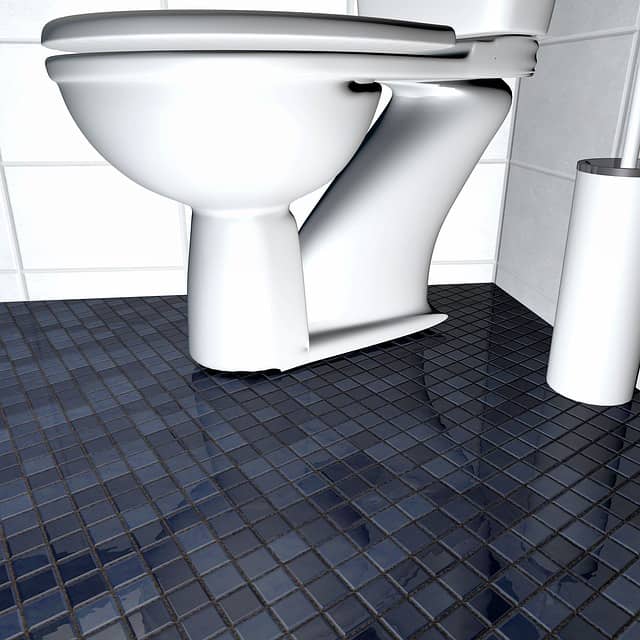Solar water heaters aren’t as popular in the northern hemisphere unless it’s the summertime – as it’s very hard to keep a tank of water on your roof warm when its freezing cold out. However, in the ever-growing popularity of going ‘green’, you’re bound to find a solar water heater system setup just about anywhere now.
In this article, I’ll cover the advantages and disadvantages of owning a solar water heater. I have also included some great frequently asked questions at the bottom of the page. Before we dive into the pros and cons, let’s first go over what a solar water heater is at a high level.
What is a Solar Water Heater?
Solar heating systems can be thought of as greenhouses for water, allowing them to heat water without using any fossil fuels. Solar water heat isn’t a new thing; in fact, the first system was patented back in 1891- that’s over 130 years ago.
Of course, over time systems have improved. Today’s systems use solar panels to trap the heat. This heat then warms the water in a storage tank.
You can choose between an active solar water heater and a passive solar water heater. The main difference between active systems and passive systems is that active systems have pumps and controls. Passive systems tend to cost less than active systems, but they’re not as efficient. A professional installer can help you determine the right type of system for your home.
Solar water heaters can save households significant amounts money and help reduce local air pollution by using less energy. They’re not cheap, but they can save up to 80% of the energy costs over time. This means big savings for you in the long run as a newly installed solar water heating system could pay for itself within a couple of years.
So, if you’re ready to learn more, let’s now go over the advantages and disadvantages of a solar water heater.

Solar Water Heater Pros
You’ll Save Natural Gas and Power Costs
Once your system is in place, you won’t be receiving an energy bill or a power from hot water usage. This’ll be dependent on what solar water heater you install. You’ll still have a water bill if you currently have one. Even better, unlike your neighbors, you won’t be subject to any price increases for electrical or natural gas.
There’s Little to No Maintenance
Once setup and running, these units don’t require much for maintenance. Very similar to an indoor storage tank water heater where there’s not much maintenance other than changing the anode rod.
I’d recommend checking the anode rod after 12 to 18 months to see how corroded it is. Replace, if necessary. This first check on the anode should help determine how often to change the rod going forward.
Longer Lifespan than Traditional Water Heaters
With regular maintenance, you can expect a solar water heater to last 10 years minimum and potentially up to 20 years. A storage tank indoor water heater will last you anywhere from 5 to 10 years if you’re lucky.
Environmentally Friendly Heating
There’s a good chance this is what attracted you to the idea of heating water this way. You won’t be using electrical or natural gas to heat water therefore helping to reduce your carbon footprint on earth.
By doing this, you’re one step closer to going green.
Could Increase Your Homes Value
If a new home buyer sees that your house has a solar water heater, they know there’ll be a savings right off the bat when purchasing your home.
Anything you can do to add comfort and make the home self sufficient will add value.
Using Free Solar Energy to Heat Your Water
This ties in to two points above and should be obvious. Every day the sun rises and sets and every day it’ll be heating your water for you. Not much else to say.
Takes Minimum Roof Space
Solar hot water panels are smaller than panels installed for solar power. This is because you don’t need as much panel to heat water as you do to generate electricity.
Therefore, you won’t have to use much roof space. This means if you want to have solar panels for electricity, it shouldn’t be a problem to fit those panels on the roof as well.
You should keep in mind that a full water tank on your roof will be heavy. If you have an older home, you might have to do some reinforcement in the attic for the weight.
You’ll also have to place the panels where they’ll have the most exposure to the sun daily.

The Cons of Using a Solar Water Heater
Upfront Installation Can be Pricey
Since most homes aren’t roughed in for a solar heater on the roof, it could be somewhat costly to get a system like this installed.
Any handyman should be able to install this for you however, if you hire a solar company that does water heaters, you should be able to get some installation warranty.
Inconsistent Temperatures are Common
The big problem with these systems – as good as they are – is the inconsistent hot water temps you can get.
Solar water heaters don’t heat up as fast as a natural gas or electric systems so you can expect some ups and downs for temperatures.
Just like anything in life though, you’ll adapt to these fluctuations.
Optimum Performance is Dependent on Climate
I live in Canada and in the late fall to early summer, I couldn’t use one of these. In the winter, it would freeze up completely.
Unless you’re solely using it in the summer, you need to be in a region of the world where your temperatures never drop near freezing. It would still work in a cooler climate however, the water most likely wouldn’t heat as much as you want it to.
That said, there’s a system called “thermosyphon” that does work fine in cooler regions however, where I am with -45 windchills, it’s probably not the best idea. If you’re curious, you should check out a thermosyphon system.
If you live in Western or Eastern Canada or the USA, you could have a unit like this. If you live in the prairie regions, you need to make sure to do your due diligence and try to find someone who has a solar water heater hooked up. I personally haven’t seen one in my area.
Solar Hot Water is Only Works for Water Not Electricity
A solar hot water system heats water but can’t power your home. It’s not a complete solution.
To use solar energy to power your entire home, you’ll need to install a photovolatic solar panel system which generates usable electricity.
If you have a water heater already that is powered (heated) by electricity, you might just consider installing a solar photovolatic system.
You can use the energy produced by the solar panels to run your electric water heating setup rather than using fossil fuels or wasting money on a solar water heater setup.
Less Efficient on Cloudy Days
If you don’t know much about solar systems, you should know that if you have cloudy days, you’re not going to get your water heated.
If you live in a part of the world that’s cloudy and rainy all the time, this might not be the investment for you.
Maintenance Costs
A solar thermal system consists of pipes and pumps which can fail and take down the entire system.
If you’re not handy and can’t do the maintenance and repairs yourself, you should make sure you’re ready to spend the extras it might cost to upkeep this system.
That’s it for pros and cons. Up next, I’ll talk a bit about the two kinds of solar water heaters available and answer some FAQs for you.
The Two Types of Solar Water Heaters
Now that you know the advantages and disadvantages of solar water heating, let’s go over the two different types of heaters you can have installed.
Active (direct circulation system) – sensors recognize when sunlight is out and then turn on. This setup is best suited in regions where temperatures doesn’t fall below zero.
Active (indirect circulation system) – this system functions in regions where the temperatures drop below zero. It can be used for more than just hot water heating. You can use it to heat a swimming pool. Active indirect systems are more expensive than direct systems.
Passive (integral collector-storage passive system) – because it has a storage tank, it’s ideal for households with significant water needs and suitable for regions where temperatures don’t fall below zero.
Passive (thermosyphon system) – the most dependable and expensive water heating system available. This one is for people with high volume hot water requirements and will work in regions where temperatures fall below zero.
Is a Solar Water Heater Worth it?
A solar water heater is worth it if you live in an area where you can utilize this setup all year long.
Do Solar Water Heaters Work at Night?
Solar water heaters will store hot water that was heated the previous day. It won’t heat more water as there’s no sunshine to do so.
Do Solar Water Heaters Work in the Winter?
Solar water heaters will work in some areas that don’t get too cold in the winter. If you live where it gets extremely cold, then this setup isn’t going to work. The closer you live to the equator, the better this’ll work for you.
How Hot is the Water from a Solar Water Heater?
Solar water heaters can generate a hot water temperature somewhere between 60 to 80 degrees Fahrenheit. (15.5 to 25.5 Celsius).
Do Solar Water Heaters Work on Cloudy Days?
Solar water heaters retain heat from previously being exposed to the sun. If the sun isn’t out shining on the panels, the water isn’t getting heated up.
Final Thoughts
The best thing you can do if you want to hook up a solar water heating system is to find someone close to you who has one installed. Ask them all the questions you can think of.
You don’t want to be installing something on your roof that ends up being a mistake.
I trust this article has been on help to you. Thanks for reading and good luck.
Recommended Posts
Tankless Water Heaters Pros and Cons
Tankless Water Heater Maintenance Tips (How to Descale)
Are Water Heater Insulation Blankets Worth Using?



